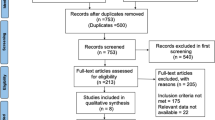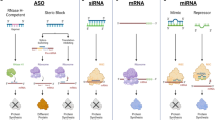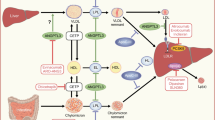Abstract
Purpose of Review
This review intends to highlight selected cardiovascular disease (CVD) prevention studies presented at the 2019 European Society of Cardiology (ESC) Congress.
Recent Findings
Results from the Inclisiran for Subjects with ASCVD or ASCVD-risk Equivalent and Elevated Low-density Lipoprotein Cholesterol (ORION-11) trial validate inclisiran’s ability to significantly lower low-density lipoprotein cholesterol (LDL-C) levels in at-risk individuals on a background of maximally tolerated statin therapy. The EVOlocumab for Early Reduction of LDL-cholesterol Levels in Patients With Acute Coronary Syndromes (EVOPACS) trial provide additional support that a PCSK9 inhibitor can be initiated safely and effectively early after an acute coronary syndrome. A sub-study of the Evaluation of Cardiovascular Outcomes After an Acute Coronary Syndrome During Treatment With Alirocumab (ODYSSEY OUTCOMES) trial provides further support for stratification of secondary prevention patients to help define the magnitude of risk reduction associated with PCSK9 inhibitor therapy. A post hoc analysis from the Aspirin in Reducing Events in the Elderly (ASPREE) trial suggest that any benefits associated with aspirin utilizing a risk-based approach are overwhelmed by increased bleeding risk. In a large retrospective cohort study of patients with diabetes mellitus and obesity, the addition of metabolic (weight loss) surgery to standard care led to greater improvement in CVD outcomes, weight loss, and glycemic control. Results from the Prospective Urban Rural Epidemiology (PURE) study demonstrate that while hypertension and dyslipidemia exert additive lifelong effects on CVD risk, other less established risk factors such as low education, household pollution, and poor diet also have a strong impact on CVD outcomes, especially in middle- and low-income countries. Finally, in the Heart Outcomes Prevention and Evaluation (HOPE) 4 trial, a comprehensive model of care adapted to address multiple barriers of specific communities led to substantial improved blood pressure (BP) control, medication use, and adherence.
Summary
A number of studies presented at the 2019 ESC Congress reinforced the value of preventative interventions in CVD risk reduction.
Similar content being viewed by others
References
Papers of particular interest, published recently, have been highlighted as: • Of importance •• Of major importance
• Sabatine MS, Giugliano RP, Keech AC, Honarpour N, Wiviott SD, Murphy SA, et al. Evolocumab and clinical outcomes in patients with cardiovascular disease. N Engl J Med. 2017;376(18):1713–22. Randomized controlled trial assessing the efficacy and safety of PCSK9 inhibitor, evolocumab, in high-risk patients with clinical atherosclerotic cardiovascular disease n maximally tolerated statin therapy.
• Schwartz GG, Steg PG, Szarek M, Bhatt DL, Bittner VA, Diaz R, et al. Alirocumab and cardiovascular outcomes after acute coronary syndrome. N Engl J Med. 2018;379(22):2097–107. Randomized controlled trial assessing efficacy and safety of PCSK9 inhibitor, alirocumab, in patients with acute coronary syndrome on maximally tolerated statin therapy.
Ray KK, Landmesser U, Leiter LA, Kallend D, Dufour R, Karakas M, et al. Inclisiran in patients at high cardiovascular risk with elevated LDL cholesterol. N Engl J Med. 2017;376(15):1430–40.
Ray KK, Inclisiran for subjects with ASCVD or ASCVD-risk equivalent and elevated low-density lipoprotein cholesterol. European Society of Cardiology Congress 2019; 2019; Paris, France.
Koskinas KC, Windecker S, Pedrazzini G, Mueller C, Cook S, Matter CM, et al. Evolocumab for early reduction of LDL-cholesterol levels in patients with acute coronary syndromes (EVOPACS). J Am Coll Cardiol. 2019.
Roe MT, Li QH, Bhatt DL, Bittner VA, Diaz R, Goodman SG, et al. Risk categorization using new American College of Cardiology/American Heart Association guidelines for cholesterol management and its relation to alirocumab treatment following acute coronary syndromes. Circulation. 2019.
•• Grundy SM, Stone NJ, Bailey AL, Beam C, Birtcher KK, Blumenthal RS, et al. 2018 AHA/ACC/AACVPR/AAPA/ABC/ACPM/ADA/AGS/APhA/ASPC/NLA/PCNA Guideline on the management of blood cholesterol: a report of the American College of Cardiology/American Heart Association Task Force on clinical practice guidelines. Circulation. 2019;139(25):e1082–e143. Recently published North American guidelines on the management of blood cholesterol for primary and secondary prevention of atherosclerotic cardiovascular disease.
Virani SS, Akeroyd JM, Smith SC, Al-Mallah M, Maddox TM, Morris PB, et al. Very high-risk ASCVD and eligibility for nonstatin therapies based on the 2018 AHA/ACC cholesterol guidelines. J Am Coll Cardiol. 2019;74(5):712–4.
Schauer PR, Bhatt DL, Kirwan JP, Wolski K, Aminian A, Brethauer SA, et al. Bariatric surgery versus intensive medical therapy for diabetes - 5-year outcomes. N Engl J Med. 2017;376(7):641–51.
Mingrone G, Panunzi S, De Gaetano A, Guidone C, Iaconelli A, Nanni G, et al. Bariatric-metabolic surgery versus conventional medical treatment in obese patients with type 2 diabetes: 5 year follow-up of an open-label, single-centre, randomised controlled trial. Lancet. 2015;386(9997):964–73.
Aminian A, Zajichek A, Arterburn DE, Wolski KE, Brethauer SA, Schauer PR, et al. Association of metabolic surgery with major adverse cardiovascular outcomes in patients with type 2 diabetes and obesity. JAMA. 2019.
• Marso SP, Holst AG, Vilsbøll T. Semaglutide and cardiovascular outcomes in patients with type 2 diabetes. N Engl J Med. 2017;376(9):891–2. Randomized controlled trial assessing the efficacy and safety of GLP1R agonist semaglutide in reduction of cardiovascular outcomes.
• Marso SP, Daniels GH, Brown-Frandsen K, Kristensen P, Mann JF, Nauck MA, et al. Liraglutide and cardiovascular outcomes in type 2 diabetes. N Engl J Med. 2016;375(4):311–22. Randomized controlled trial assessing the efficacy and safety of GLP1R agonist liraglutide in reduction of cardiovascular outcomes.
McNeil JJ, Nelson MR, Woods RL, Lockery JE, Wolfe R, Reid CM, et al. Effect of aspirin on all-cause mortality in the healthy elderly. N Engl J Med. 2018;379(16):1519–28.
D'Agostino RB, Vasan RS, Pencina MJ, Wolf PA, Cobain M, Massaro JM, et al. General cardiovascular risk profile for use in primary care: the Framingham Heart Study. Circulation. 2008;117(6):743–53.
Goff DC, Lloyd-Jones DM, Bennett G, Coady S, D'Agostino RB, Gibbons R, et al. 2013 ACC/AHA guideline on the assessment of cardiovascular risk: a report of the American College of Cardiology/American Heart Association Task Force on Practice Guidelines. Circulation. 2014;129(25 Suppl 2):S49–73.
Reid CM, editor A risk based approach to the role of aspirin on cardiovascular risk reduction in a healthyolder cohort. European Society of Cardiology Congress 2019; 2019; Paris, France.
Bowman L, Mafham M, Wallendszus K, Stevens W, Buck G, Barton J, et al. Effects of aspirin for primary prevention in persons with diabetes mellitus. N Engl J Med. 2018;379(16):1529–39.
Gaziano JM, Brotons C, Coppolecchia R, Cricelli C, Darius H, Gorelick PB, et al. Use of aspirin to reduce risk of initial vascular events in patients at moderate risk of cardiovascular disease (ARRIVE): a randomised, double-blind, placebo-controlled trial. Lancet. 2018;392(10152):1036–46.
Yusuf S, Joseph P, Rangarajan S, Islam S, Mente A, Hystad P, et al. Modifiable risk factors, cardiovascular disease, and mortality in 155 722 individuals from 21 high-income, middle-income, and low-income countries (PURE): a prospective cohort study. Lancet. 2019.
Ference BA, Julius S, Mahajan N, Levy PD, Williams KA, Flack JM. Clinical effect of naturally random allocation to lower systolic blood pressure beginning before the development of hypertension. Hypertension. 2014;63(6):1182–8.
Ference BA, Majeed F, Penumetcha R, Flack JM, Brook RD. Effect of naturally random allocation to lower low-density lipoprotein cholesterol on the risk of coronary heart disease mediated by polymorphisms in NPC1L1, HMGCR, or both: a 2 × 2 factorial Mendelian randomization study. J Am Coll Cardiol. 2015;65(15):1552–61.
Ference BA, Bhatt DL, Catapano AL, Packard CJ, Graham I, Kaptoge S, et al. Association of genetic variants related to combined exposure to lower low-density lipoproteins and lower systolic blood pressure with lifetime risk of cardiovascular disease. JAMA. 2019.
•• Mach F, Baigent C, Catapano AL, Koskinas KC, Casula M, Badimon L, et al. 2019 ESC/EAS Guidelines for the management of dyslipidaemias: lipid modification to reduce cardiovascular risk. Eur Heart J. 2019; Recently published European guidelines on the management of blood cholesterol for primary and secondary prevention of atherosclerotic cardiovascular disease.
Schwalm JD, McCready T, Lopez-Jaramillo P, Yusoff K, Attaran A, Lamelas P, et al. A community-based comprehensive intervention to reduce cardiovascular risk in hypertension (HOPE 4): a cluster-randomised controlled trial. Lancet. 2019.
Author information
Authors and Affiliations
Corresponding author
Ethics declarations
Conflict of Interest
Xiaoming Jia declares that he has no conflict of interest.
Mahmoud Al Rifai declares that he has no conflict of interest.
Ty J. Gluckman declares that he has no conflict of interest.
Yochai Birnbaum declares that he has no conflict of interest.
Salim S. Virani has received research funding from the Department of Veterans Affairs, the American Heart Association, the American Diabetes Association, and the World Heart Federation; has received honoraria from the American College of Cardiology for his role as an Associate Editor; and has served on the steering committee for the Provider Assessment of Lipid Management (PALM) registry at Duke Clinical Research Institute, but received no financial remuneration.
Human and Animal Rights and Informed Consent
This article does not contain any studies with human or animal subjects performed by any of the authors.
Additional information
Publisher’s Note
Springer Nature remains neutral with regard to jurisdictional claims in published maps and institutional affiliations.
Topical Collection on Global Coronary Heart Disease
Rights and permissions
About this article
Cite this article
Jia, X., Al Rifai, M., Gluckman, T.J. et al. Highlights from Selected Cardiovascular Disease Prevention Studies Presented at the 2019 European Society of Cardiology Congress. Curr Atheroscler Rep 21, 46 (2019). https://doi.org/10.1007/s11883-019-0813-7
Published:
DOI: https://doi.org/10.1007/s11883-019-0813-7




